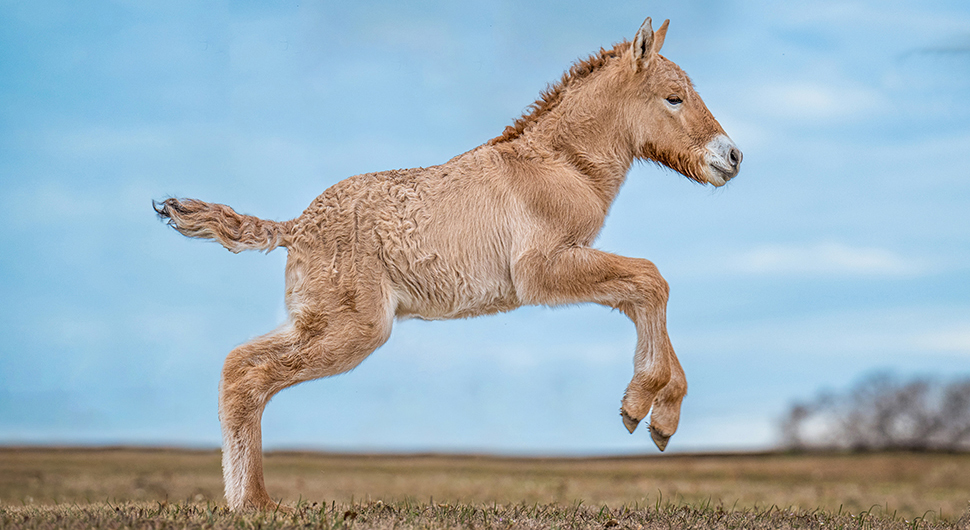Colossal Biosciences, the Dallas-based de-extinction startup working to bring back the woolly mammoth, Tasmanian tiger, and dodo bird, just made its first acquisition. It has acquired Viagen Pets and Equine, a Texas company that’s been cloning animals commercially since 2002.
The pairing brings together a $10.3 billion decacorn known for seemingly impossible science with a company that’s cloned 15 species, including endangered ones, and runs a commercial pet cloning business with a five-to-seven month waitlist.
In announcing the deal, Colossal said the acquisition combines Colossal’s genetic engineering platform with Viagen’s cloning expertise and proprietary technologies originally licensed from Scotland’s Roslin Institute, the lab that cloned Dolly the sheep. Neither company disclosed financial terms.
Viagen, founded in Austin, brings an established commercial operation with cloning success rates approaching 80% across multiple species—dramatically higher than the roughly 2% average cited in published studies, according to Colossal. The company is among the few in the world to have successfully cloned endangered species, including the black-footed ferret and the critically endangered Przewalski’s horse.
“No other company comes close to what Viagen has achieved,” said Ben Lamm, Colossal co-founder and CEO. “Their unmatched expertise and cloning technology stack have become the world’s standard.”
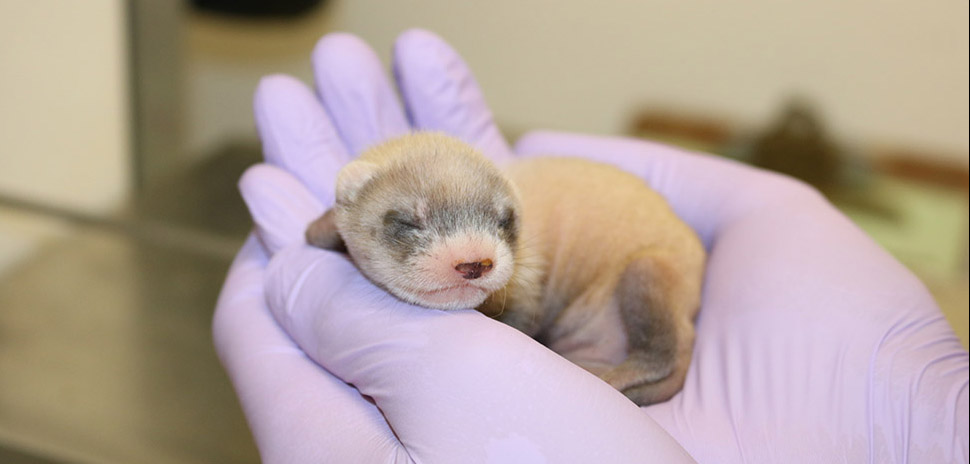
“Elizabeth Ann,” the first cloned black-footed ferret, represents a genetic line that had been lost for more than 30 years. [Photo: Viagen Pets and Equine]
Moonshots, mission, and money
Viagen’s established pet and equine cloning operations bring a mature commercial arm to Colossal’s portfolio, complementing its moonshot efforts to rewild extinct species and build the world’s first large-scale genetic “BioVaults.”
Viagen charges approximately $50,000 to clone a dog or cat and $85,000 for horses, according to Trends, a publication of the American Animal Hospital Association. The company has cloned thousands of animals over its 25-year history.
According to the publication, Viagen is the only company based in the United States offering commercial pet cloning services.
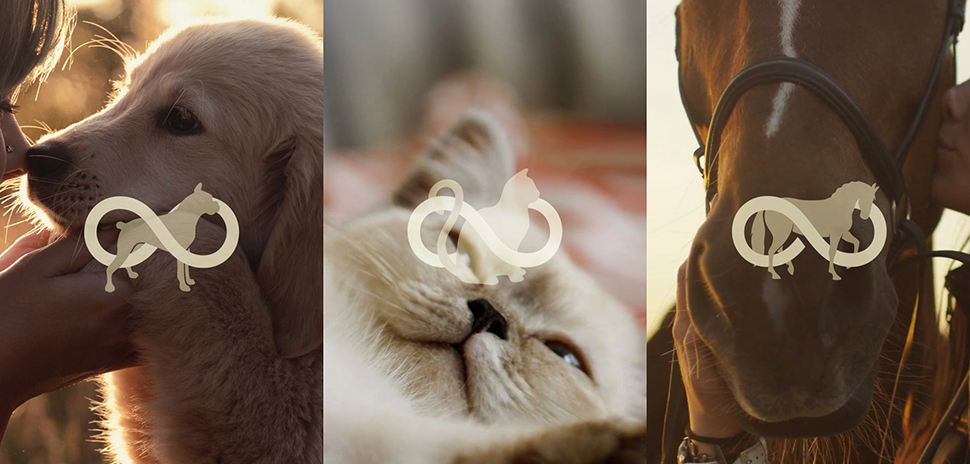
Viagen has experience cloning a wide variety of non-primate mammals, including cattle, pigs, sheep, goats, white-tailed deer, dogs, cats, and horses—over 15 species in total. [Image: Colossal, Viagen Pets and Equine]
Beyond its commercial operations, Viagen created two critically endangered Przewalski’s horses in 2020 and 2023 from tissue that had been frozen at the San Diego Zoo since 1980. The company has cultured and biobanked genetic material from more than 40 species, including 22 that are threatened or endangered.
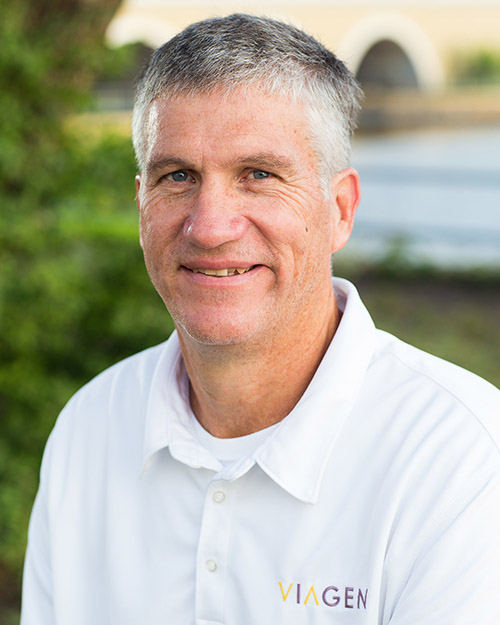
Viagen President Blake Russell
Blake Russell, Viagen’s president, who will stay on to lead the company as a Colossal subsidiary, has spent 25 years in animal genetics. “Joining forces with Colossal gives Viagen the scale, resources, and shared vision to expand what we can do,” Russell said. Colossal is the only de-extinction company and a leader in biotechnology.
Russell expects the combination will accelerate breakthroughs in genetic preservation, animal health, and endangered species recovery “at a scale that simply wasn’t possible on our own.”
Biology meets software engineering
For Lamm, a billionaire entrepreneur who built five software companies before Colossal, the acquisition solves a specific problem. He’s impatient, and biology is slow.
“I am not a patient person,” Lamm said last week at Dallas’s Venture Dallas conference. “Some of the species take anywhere from nine to 22 months. I wish everything could grow in 20 days, but it is very hard.”
Viagen’s capabilities offer immediate wins while Colossal’s longer-term projects, like the 22-month mammoth gestation period, play out.
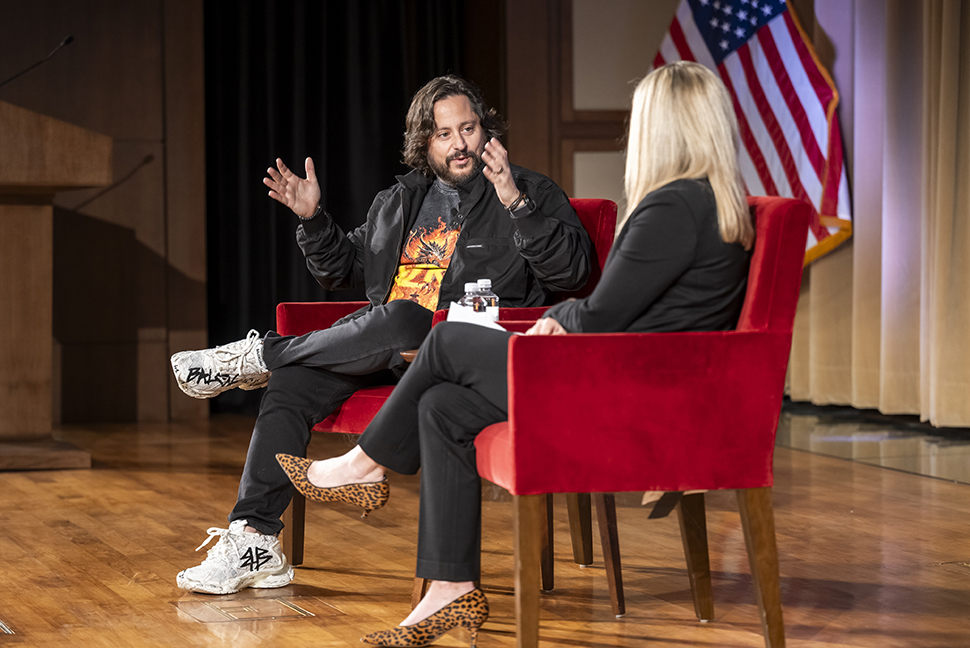
Ben Lamm, CEO of Colossal Biosciences, talks de-extinction, AI, and what it takes to “run toward critics” during a fireside chat with Bloomberg’s Julie Fine at Venture Dallas, held October 30 at the George W. Bush Presidential Center. [Photo: Grant Miller Photography/Venture Dallas]
But there’s a deeper strategy at work. At Venture Dallas, Lamm described Colossal’s approach to de-extinction as looking “more like software engineering than traditional biology.” The company uses AI to model comparative genomics, design precise gene edits, and compress timelines. “Without AI, our projects would take 50-plus years,” he said.
That shift reflects what Lamm sees as a big change in the field itself. “I think that in the next 10 years, it’ll be 90% engineering and 10% discovery versus what it was the last 50 years,” he told the audience.
Making that shift hasn’t been easy. “The hardest thing we do at Colossal is to train academic scientists for industry—how to use JIRA,” Lamm said, about the project management software standard in tech companies. “I always run Colossal like a software company.”
His team of scientists and engineers work side by side, treating species reconstruction like product development cycles, complete with version control, testing models, and iterative validation.
The approach has already produced striking results. Colossal has analyzed more than 100 woolly mammoth genomes, some dating back over a million years, to guide its gene-editing work. In its dodo project, scientists have successfully edited chicken embryos to carry the primordial germ cells of a pigeon, an early step toward creating a surrogate bird that could one day lay dodo-like offspring.
The company has also announced the birth of three “dire wolves”—Romulus and Remus in 2024 and Khaleesi in early 2025—engineered to express traits of the extinct dire wolf. And in the lab, Colossal validated its mammoth gene work by creating two genetically modified mice, whose long, coarse coats mimic mammoth hair.
Running toward the controversy
The acquisition of Viagen extends Colossal’s work into pet cloning, an area that has at times drawn ethical questions from animal welfare groups about health and welfare standards.
Colossal has encountered its own scrutiny from the scientific community. Some experts have questioned whether the company’s work constitutes true “de-extinction” or creates proxy species—the dire wolves, for instance, are genetically edited gray wolves.
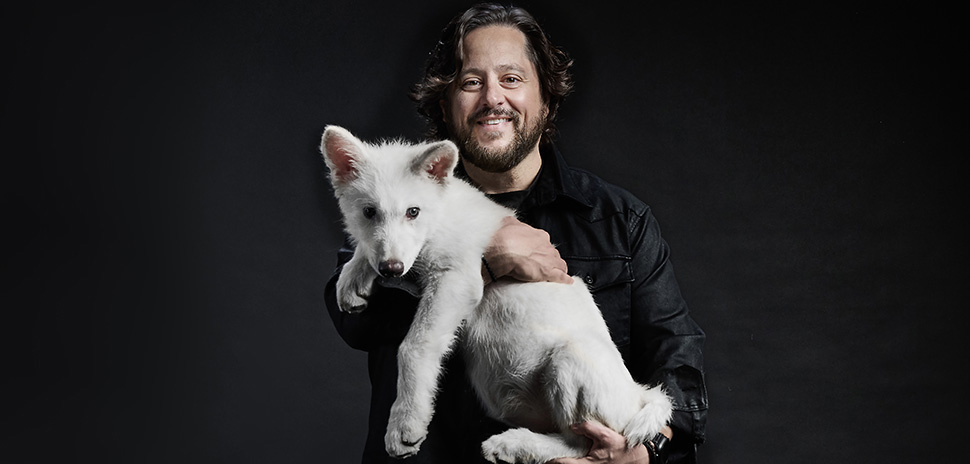
Ben Lamm with a “de-extincted” dire wolf pup. Critics have challenged the label, but Lamm calls it “a semantic question, not a scientific one.” [Photo: Colossal Biosciences]
But Lamm is comfortable pushing boundaries—and has a track record of turning skeptics into allies.
“The attitude that we had since day one, of like running towards critics, has helped us,” he said at Venture Dallas. “It’s not really our job to persuade anyone. We’re going to do what we’re going to do. We’re pretty convicted about it.”
He pointed to his own chief science officer as proof the strategy works. “Beth Shapiro wrote a book that said, How do you clone a mammoth? Spoiler: the book ends with ‘you can’t’ … she wasn’t our biggest fan when we launched,” Lamm said.
Today, Shapiro leads Colossal’s scientific efforts.
The approach seems to be working. When Colossal announced the dire wolves, the project generated 120 billion media impressions and 20,000 stories. Lamm told the Venture Dallas audience he expected only 20% positive coverage. The actual result? 68% positive.
Even the genetically modified mice nicknamed Chip and Dale at SXSW in Austin became social media celebrities, with users creating meme coins and debating which mouse was “better,” according to Lamm.
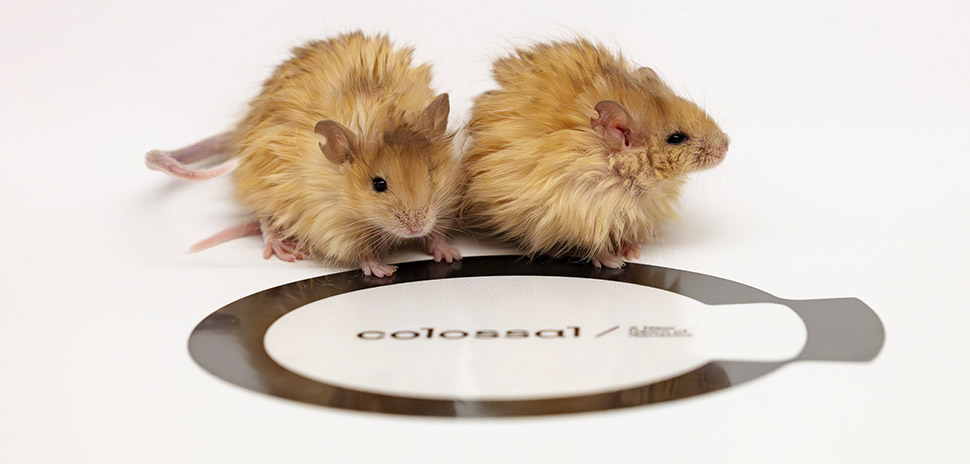
The Colossal “woolly mice,” created to test mammoth gene edits, became social media favorites. [Photo: Business Wire]
Taking science to the people
Colossal has proven it can capture public attention. Its 2024 dire wolf announcement generated 120 billion media impressions and attracted celebrity investors including Game of Thrones creator George R.R. Martin.
Not everyone is convinced. Lamm estimates about 25% of academics oppose Colossal’s methods, particularly its use of TikTok and Instagram to communicate directly with the public.
At Venture Dallas, Lamm described getting “slaughtered” in Australian papers when Colossal launched its Tasmanian tiger project. The critique? The company was putting content on social media instead of keeping it in scientific journals.
Lamm sees it differently. “I think we’re in the attention economy,” he said at the conference. “Kids aren’t reading Nature and Cell. Everyone else is on TikTok.”
That philosophy doesn’t always go over well with scientists. Lamm recounted a recent call with 1,000 researchers where he made his case for popular science communication. “I said, ‘Well, look, the problem is people love science, they hate scientists,’” Lamm told the Venture Dallas audience. “And that didn’t go over well on the call.”
What Viagen brings
Beyond pet cloning, Viagen has built expertise in advanced reproductive technologies. In 2022, it began offering Intracytoplasmic Sperm Injection (ICSI) services for horses—a process that lets breeders select a foal’s sex. The company also holds an exclusive U.S. and Canadian license for Sexed Semen Technology from ST Genetics.
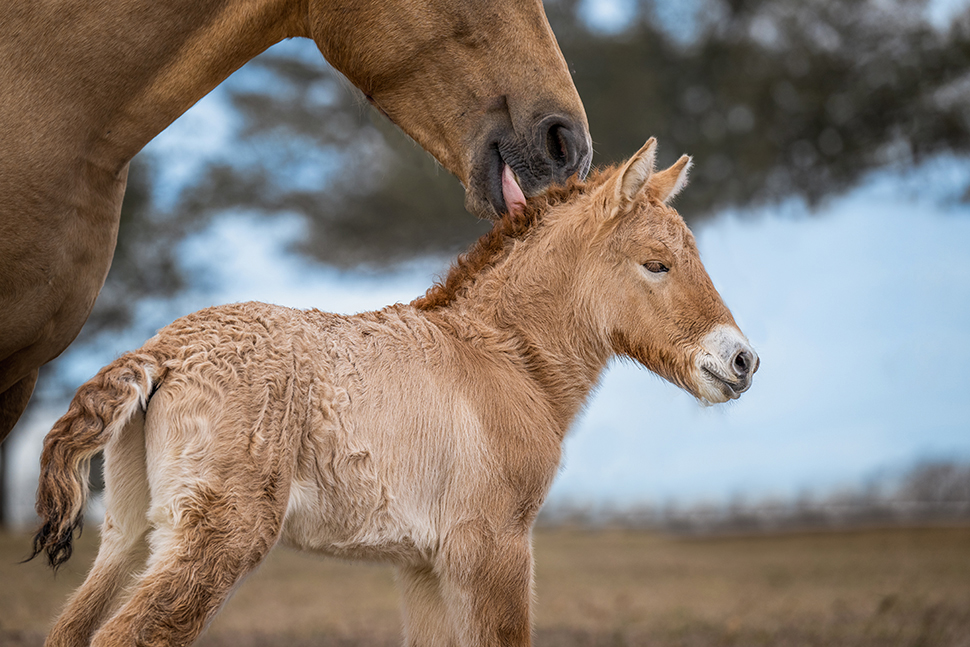
A Przewalski’s horse colt cloned by Viagen Equine for a San Diego Zoo conservation project, is pictured at five days old in Gainesville. [Photo: Elizabeth Arellano Photography/Viagen]
According to Colossal, Viagen’s milestones include creating two critically endangered Przewalski’s horses in 2020 and 2023 from tissue cryopreserved at the San Diego Zoo since 1980—a feat the company describes as proof of what combining advanced cloning and cryopreservation can do.
The company said it has also cultured and biobanked genetic material from more than 40 species, including 22 that are threatened or endangered, such as white and black rhinos and the Florida bonneted bat.
Shawn Walker, Viagen’s chief science officer and a cloning expert for more than 20 years, described the partnership as “an extraordinary opportunity to apply our advanced cryopreservation and cloning techniques to the ambitious goals of de-extinction and species restoration.”
Viagen’s 25 employees will maintain their Texas operations while integrating into Colossal’s technology platform. The company is headquartered in Cedar Park, with an equine division operating facilities in North Texas’ Whitesboro and Ocala, Florida.
The companies’ combined capabilities make possible what neither company could do alone. “Nobody has ever cloned a marsupial,” Lamm told D CEO, referencing Colossal’s Tasmanian tiger de-extinction project. Now the “great brains” at Viagen are working on it, too.
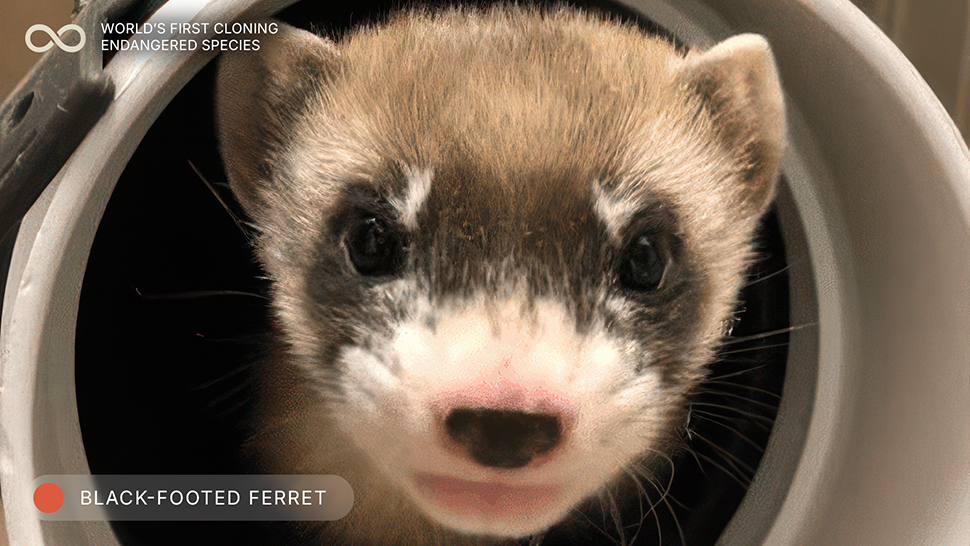
Female black-footed ferret Elizabeth Ann was cloned in a Viagen collaboration with the U.S. Fish and Wildlife Service, the conservation non-profit Revive & Restore, and the San Diego Zoo Wildlife Alliance on the project. [Photo: Viagen/Colossal]
Texas roots, global ambitions
Colossal has raised roughly $558 million in venture funding from an investor roster that spans Silicon Valley to Hollywood. Backers include Breyer Capital’s Jim Breyer, Legendary Entertainment founder Thomas Tull, and Guggenheim’s Mark Walter—along with celebrity investors such as Chris Hemsworth, Paris Hilton, Tony Robbins, and the Winklevoss twins. Other high-profile backers include filmmaker Peter Jackson and venture firms like the United States Innovative Technology Fund. In addition to investing, A Song of Ice and Fire author George R. R. Martin—whose novels inspired HBO’s Game of Thrones—also serves as a cultural advisor to the company.
The company has been oversubscribed in every funding round, according to Lamm. That’s a sign of investor confidence in what he calls “a mission as much as a business.”
But Lamm is realistic about the challenges. “Anybody tells you they don’t have trouble raising money is just lying,” he said at Venture Dallas. “Raising money is hard in every category.”
What makes Colossal’s pitch unusual, potentially harder, is its commitment to giving away half its intellectual property. “100 percent of the technologies that we make that have an application to conservation, we open source to the world for free,” Lamm explained at the conference. “So imagine that as a business, as part of your business model, half of the technologies we’re going to give away.”
The Viagen acquisition could help balance that equation.
Lamm has an unusual philosophy for a venture-backed CEO. At Venture Dallas, he posed a hypothetical. “If this company makes a trillion dollars, and you do everything you said, except bring back the mammoth. How do you feel? And I’d say, I think it’s complete failure.”
“Because I think [about] the promise we made to people in random classrooms in Middle America,” Lamm said. “To me, that promise is as big as a promise we make to an investor that gives us $300 million.”
Building a platform, not just a project
The Viagen acquisition is the latest move in Colossal’s evolution to diversified biotechnology platform.
Lamm points to Colossal’s spinout strategy, which shows how Colossal’s core research generates commercially valuable technologies beyond de-extinction itself. And it helps fund the mission work.
The company has already spun out two businesses worth over $100 million publicly, Lamm said at Venture Dallas. Breaking, which develops technology to break down plastics, raised $10.5 million in seed funding last year. Form Bio, a computational biology platform, secured $30 million in funding.
Colossal plans to spin off a third business over the next two years. This one is focused on artificial womb technology that could have applications in fertility treatment, according to TechCrunch.
“We both don’t like the word ‘impossible’”
At Venture Dallas, Lamm revealed he still spends seven hours a week talking with George Church, his Colossal co-founder, the Harvard geneticist who had worked on the mammoth project for eight years before the startup launched.
Those weekly conversations rarely go as planned. “Yesterday, we had a 90-minute call. There was supposed to be 30 minutes. We had one topic to talk about. We still didn’t talk about it, because we go off,” Lamm said at the conference. “We go to strange places occasionally.”
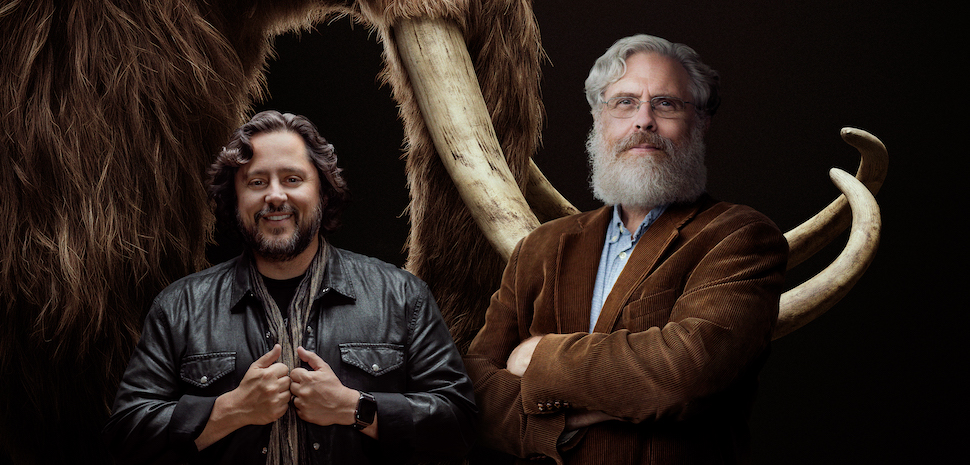
Colossal Biosciences co-founders Ben Lamm and George Church aim to “de-extinct” the woolly mammoth and other long-lost creatures. [Photo: Colossal]
Their partnership began after Lamm called Church to discuss building a software company around synthetic biology. After Church quickly answered his initial question, Lamm asked what project Church would pursue with unlimited capital. Church’s answer was immediate: He wanted to bring back the woolly mammoth and use those technologies to save critically endangered species.
“No matter what he was being talked about, whether it was next gene sequencing or CRISPR technologies, there was this mammoth through line,” Lamm recalled at Venture Dallas. “And the minute people asked about it, you could see his change in demeanor … he got so excited.”
A week later, Lamm was in Church’s lab, convinced.
“We both don’t like the word ‘impossible,’” Lamm said at Venture Dallas. “When you meet someone who’s the father of synthetic biology and he tells you that nothing’s impossible, it’s kind of hard not to get sucked into that.”
Looking ahead, Lamm hinted at more to come. “I think it’s highly likely we will see more interesting technology spin-outs,” he told the Venture Dallas audience. “And I think we’ll also see interesting new forms of life.”
Don’t miss what’s next. Subscribe to Dallas Innovates.
Track Dallas-Fort Worth’s business and innovation landscape with our curated news in your inbox Tuesday-Thursday.
R E A D N E X T
-
![The South Island giant moa towered over New Zealand's forests for millions of years before becoming extinct within a century of Polynesian settlement around 1400 CE. Colossal Biosciences plans to resurrect the 500-pound birds using ancient DNA extracted from cave deposits and artificial egg technology. [Source image: Colossal Biosciences]](https://www.europesays.com/us/wp-content/uploads/2025/11/Colossal-Moa.jpg)
The Dallas decacorn is scaling its de-extinction pipeline with indigenous leadership, a New Zealand subsidiary, and economic models for species preservation, including ecotourism opportunities. Filmmaker Sir Peter Jackson helped connect the collaborators, Colossal CEO Ben Lamm says.
-

In one of his first deep interviews since Colossal’s dire wolf debut made global noise, Ben Lamm joins the TechStuff podcast to talk mammoths, backlash, and why he’s not here to play it safe.
-

North Texas has plenty to see, hear, and watch. Here are our editors’ picks. Plus, you’ll find more selections to “save the date.”
-
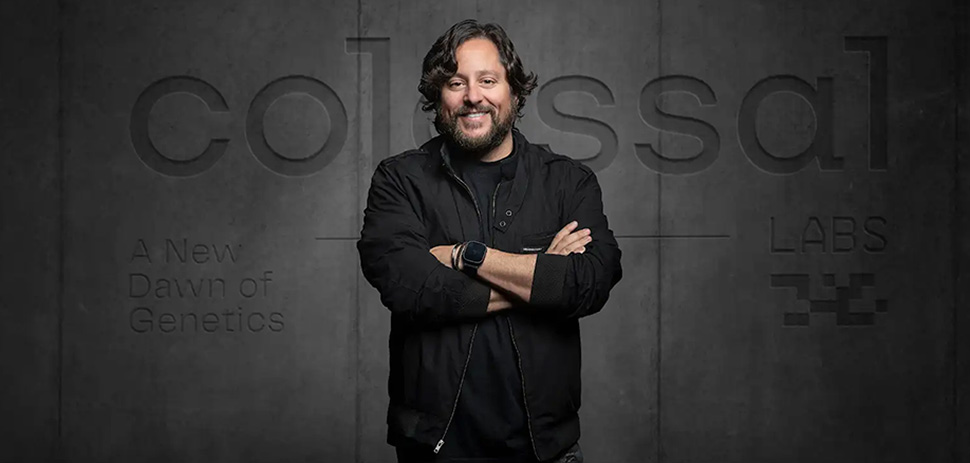
Best known for its moonshot mission to revive the woolly mammoth, Colossal Biosciences has secured $200 million in Series C funding led by TWG Global. The world’s first de-extinction company, founded in 2021 by entrepreneur Ben Lamm and renowned Harvard geneticist George Church, Colossal Biosciences is working to restore Earth’s lost biodiversity, “making science fiction into science fact.”
-
![Social entrepreneur Byron Sanders, a former nonprofit exec, is CEO of Arete Health, launched in January 2025. [Photo: Michael Samples]](https://www.europesays.com/us/wp-content/uploads/2025/10/27_ByronSanders-STEM-STEAM-STREAM-970_courtesy_Oct2019-1.jpg)
Creatives Care Dallas brings virtual care, behavioral health, 2,000+ medications with zero copay, and more to Dallas County’s gig workers. The community initiative is powered by Arete Health Shield in partnership with the Dallas Music Office.
